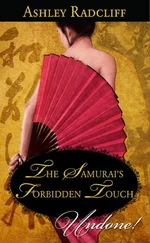Thomas Hoover - The samurai strategy
Здесь есть возможность читать онлайн «Thomas Hoover - The samurai strategy» весь текст электронной книги совершенно бесплатно (целиком полную версию без сокращений). В некоторых случаях можно слушать аудио, скачать через торрент в формате fb2 и присутствует краткое содержание. Жанр: Триллер, на английском языке. Описание произведения, (предисловие) а так же отзывы посетителей доступны на портале библиотеки ЛибКат.
- Название:The samurai strategy
- Автор:
- Жанр:
- Год:неизвестен
- ISBN:нет данных
- Рейтинг книги:5 / 5. Голосов: 1
-
Избранное:Добавить в избранное
- Отзывы:
-
Ваша оценка:
- 100
- 1
- 2
- 3
- 4
- 5
The samurai strategy: краткое содержание, описание и аннотация
Предлагаем к чтению аннотацию, описание, краткое содержание или предисловие (зависит от того, что написал сам автор книги «The samurai strategy»). Если вы не нашли необходимую информацию о книге — напишите в комментариях, мы постараемся отыскать её.
The samurai strategy — читать онлайн бесплатно полную книгу (весь текст) целиком
Ниже представлен текст книги, разбитый по страницам. Система сохранения места последней прочитанной страницы, позволяет с удобством читать онлайн бесплатно книгу «The samurai strategy», без необходимости каждый раз заново искать на чём Вы остановились. Поставьте закладку, и сможете в любой момент перейти на страницу, на которой закончили чтение.
Интервал:
Закладка:
Finally the table was cleared for the famous specialty of the spa, which His Majesty had specifically requested. It was an ornate yosenabe, a lusty Japanese bouillabaisse of artfully sculptured components, each of which signified some episode in the fateful battle of Dan-no-ura-in fact, the very engagement in which the sword was lost. That was eight hundred years ago, Tam reminded herself, yet you'd think it was only last week.
They were just concluding the meal with the traditional serving of gohan or rice when the manager of the spa entered and announced that their special entertainer was now ready. He apologized that, although he could offer nothing truly worthy of His Majesty, his humble spa had brought from Kyoto a performer he hoped would not be judged too harshly. He then ordered more sake sent in.
Although drinking more sake after a banquet's closing round of gohan is normally judged impolite, His Majesty just smiled and thanked their flustered host. Around went the small flagons once more, maids scraping the tatami with their foreheads as they refilled the Emperor's gold-trimmed saucer.
Then the fusuma parted and the evening's surprise swept into the room, wearing an austere autumn kimono of finest silk and holding a shamisen, a three-stringed instrument with a cat-skin face and gold fittings. Her lips were vermilion, her lacquered wig coal-black, her face chalk. As she bowed low before His Majesty, only one visage in the room was paler than hers.
She was, Ken whispered to Tam with great delight, none other than Matsuo Noda's former "protegee," Koriko.
After she had bowed low before the Emperor, she greeted the president and CEO of Dai Nippon as though he were merely another guest. He nodded and mumbled back a reply both curt and incomprehensible. Next she tossed a mildly flirtatious acknowledgment to Ken, who returned her wink and toasted her with his sake saucer.
That ended the formalities, since she treated the women in the room as though they were composed of thin air. Their presence violated all tradition, an embarrassment that could be papered over, Japanese style, simply by pretending they didn't exist. Tam could have cared less, while the pained face of Akira Mori indicated she was positively relieved.
Koriko took immediate command of the room with an easy poise that confirmed her professionalism. Tam guessed she was pushing forty but knew that aficionados of geisha prefer talent over youth. Using a large ivory plectrum, Koriko strummed her shamisen twice, its wound-silk strings piercing and whiny, then began a high-pitched song from her ancient repertoire. Tam couldn't follow the words and doubted if anybody else could either. However, she knew it was the convention that counted. Then at a dramatic moment two more geisha entered with a flourish and began a classical dance, all fans and rustling silk. It was a stunning floor show for those who appreciate slow-motion poses and flirtatiously exposed napes of neck. Between dances Koriko urged more sake on the men, joked with His Majesty and with Ken, and induced them both to sing a racy song. Noda, who sat there glaring, was diplomatically ignored.
For her own part, Tam was finding this traditional "geisha party" extremely juvenile and silly. Was this what supposedly intelligent Japanese businessmen consider the height of refined amusement, all this fake flattery and cajoling, mixed with not a few ribald double entendres? How depressing.
After a few more songs and dances Koriko and her ensemble began preparing to depart, whereupon His Majesty presented her with a small gift, or perhaps an honorarium, wrapped in gold paper and tied with an elaborate purple bow. In keeping with etiquette she didn't open it, merely thanked him graciously and tucked it into her obi. She then caressed the ivory pegs of her shamisen with reverence, saying she would treasure it forever as the unworthy instrument that had solaced the ears of His Imperial Majesty.
With a final bow to Noda, never hinting she knew him, she backed out the door and was gone, followed by the others. His look of relief reminded Tam of a man who'd just walked away from a collapsing building.
Whatever may have been Tam's, or Matsuo Noda's, secret thoughts about Koriko, the Emperor clearly had had a rollicking time. Presumably he didn't have all that many occasions to flirt with geisha. Now slightly the worse for sake, he began to wax pensive, turning to his American guest and offering to provide an account of the battle of Dan-no-ura. It was a definite switch of mood, but Koriko's traditional songs seemed to have struck a nostalgic nerve. Or perhaps the sword had brought him a new enthusiasm for the past he wanted to share. As he started recounting the battle, Tam smiled to think it was like having the Queen herself brief you on that family squabble of yesteryear called the War of the Roses.
"That battle, Richardson-san, between the Heike and Genji clans, was a turning point in the long history of our country; it represented the rise to power of the warriors. The shogunate." He smiled politely. "I'm afraid the monarchy never quite recovered.
"In fact, today the crabs in the Inland Sea have a mark on the back of their shells that people say is like the insignia of the Heike, that they represent the fallen banners of the Heike nobles." He paused while a maid topped off his tiny cup with more hot sake. "I suppose you've seen them?"
"Hai, miraremashita." Of course, she nodded, stretching out her vowels to maximum politeness. She wasn't sure she had actually, but this was no time to appear like a dumb gaijin.
"Well, after many years of fighting, the Heike nobles and the boy emperor they were defending fled to an island across the Inland Sea. But the Genji forces pursued them and eventually they were forced to take to their boats once more. Finally the battle was joined. Since the Heike were experienced sailors, they assumed they would prevail in a naval encounter, and thus their commander unwisely elected to make his stand in the straits, where the riptide was as quick and treacherous then as it is today. At first he had the tide in his favor and they held the enemy, but around noon the tide changed and was against them. Gradually the forces of the Genji surrounded the ship bearing the emperor and the court."
His voice faltered slightly, and she realized the story was still as fresh for him as if it had happened yesterday. Finally he continued.
"As the sad story is told in the Heike Monogatari, the court nobles saw a school of dolphins coming toward them. They said, 'If these turn back, the Genji will be destroyed and we will triumph. If they proceed, it will be a bad omen.' When the dolphins continued on, even diving under their ships, the Heike realized they were lost. And sure enough, at that moment the Genji ships began closing in.
"Now the tragic part. The nurse of the boy emperor- Antoku was only eight-resolved what she would do. She donned a double outer dress of dark gray, the color of mourning, tucked up the long skirts of her heavy silk hakama robe, and wrapped the sacred sword in her girdle. Then, taking young Antoku in her arms, she moved to the gunwale of the vessel and looked down at the waves. Finally she said to the men of the court, Though I am only a woman, I will not surrender myself to our enemies. I will accompany our Sovereign Emperor on his journey.'
"At that moment little Antoku looked up, his long black hair streaming down his back, and asked, 'Where are you taking me?'
"Tears began to flow down her cheeks. She said to him, 'Bow to the east and bid your farewell to the Great Shrine at Ise. Our capital will no longer be Kyoto but a place beneath the seas, where there is no sorrow.'
"So the young Antoku, his white robes the color of the dove, bowed east to Ise-whereupon the nurse, holding him in one arm and the sacred sword in the other, leapt into the waves.
Читать дальшеИнтервал:
Закладка:
Похожие книги на «The samurai strategy»
Представляем Вашему вниманию похожие книги на «The samurai strategy» списком для выбора. Мы отобрали схожую по названию и смыслу литературу в надежде предоставить читателям больше вариантов отыскать новые, интересные, ещё непрочитанные произведения.
Обсуждение, отзывы о книге «The samurai strategy» и просто собственные мнения читателей. Оставьте ваши комментарии, напишите, что Вы думаете о произведении, его смысле или главных героях. Укажите что конкретно понравилось, а что нет, и почему Вы так считаете.












